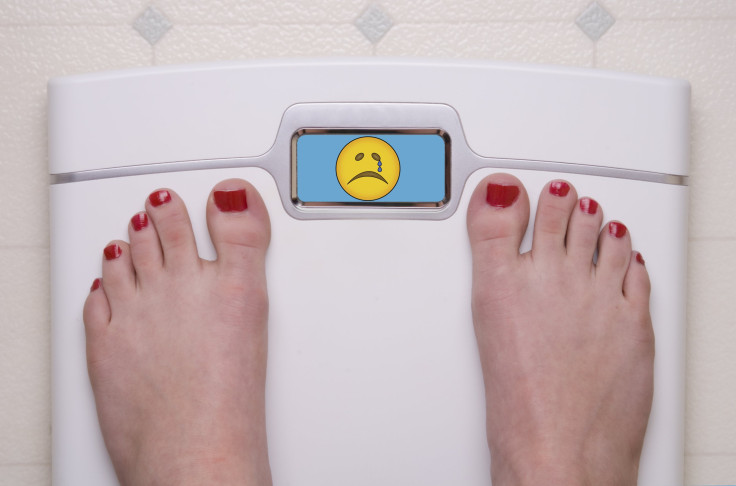Solving The Obesity Crisis With Sympathy: A Call To End Moral Stigmas

Stigmatizing people can be hurtful, especially when it comes to a person’s weight. Obese people have to face fat shaming, weightism, weight-based discrimination, and other types of bias that normal and overweight people don’t have to experience on a day-to-day basis. German researchers from the University of Leipzig studied how the average person interacts with obese people and how they feel about it. Their findings, published in the journal Social Science & Medicine, may help people develop healthy relationships with obese people.
Common stereotypes people force upon obese people is that they’re thought to be lazy, lack self-discipline, have poor willpower, intellectual impairment, bad diet or exercise habits, and are thought to be generally unhealthy. Social portrayals of fat people only reinforce biased attitudes toward a large population of what America has turned into, and throw fuel into the fire.
Knowing these unrelenting perceptions toward obese people, researchers looked at what those stigmatisms do to a relationship building. They asked 3,003 people to rate on a scale of 1 to 5 their level of discomfort, pity, insecurity, amusement, sympathy, help, and incomprehension toward obese people. Then they asked them to rate 1 to 5 on how likely they felt about recommending them for a job, introducing them to a friend, having an obese person marry into their family, or renting out a room to them.
Most people felt pity, but in second place came sympathy, and in third people felt they wanted to help them. Researchers believe that if emotional responses toward obese people can be altered to a more sympathetic response in each interaction with an obese person, it could be a starting point to intervene in the stigmatism. People who are normal and overweight would also interact with obese people more if their strongest emotion toward them was a sympathetic one, according to the study’s theory.
Socializing With Obese People
Harvard University researchers have already projected the obesity rate will climb past 40 percent by 2050. Today, more than one-third of adults in the United States are obese, and the numbers of obese children and adults are steadily climbing, according to the Centers for Disease Control and Prevention. Since obesity is officially considered a disease by the American Medical Association, Harvard approaches the dangerously excessive weight gain with terms that seem more befitting for a chicken pox diagnosis.
Socially transmitted obesity is the influence friends, family, coworkers, peers, and classmates have on a person, while nonsocial transmission depends on the person’s access to unhealthy foods and how sedentary their lifestyle is on a long-term basis. While the latter seems more like a personal problem on a case-by-case basis, socially transmitted obesity is a complete gray area and difficult area of study to navigate as America’s waistline grows.
“Our analysis suggests that while people have gotten better at gaining weight since 1971, they haven’t gotten any better at losing weight,” the study’s lead author Alison L. Hill, a graduate student in Harvard’s Program for Evolutionary Dynamics, Biophysics Program, said in a press release. “Specifically, the rate of weight gain due to social transmission has grown quite rapidly.”
Socially impacted obesity has actually grown quickly in the last four decades, according to researchers. Every single person who isn’t obese has a two percent chance of becoming obese within a year. That number rises by 0.5 percent for every obese person they socialize with. Not only do the people around you reinforce bad eating habits and lifestyles, but knowing just four obese people can double your risk of becoming just like them.
Putting fears aside, people of normal and overweight populations could be an integral part of obese people’s recovery process. By incorporating sympathy into how people react to obesity, the disease could be treated simply with healthy human interaction. Start by giving an obese person a chance to talk about their emotions, and listen to how she’s feeling or coping with her health condition (because that’s what it is — a health condition — and not a lazy person who’s choosing to dig their grave with a fork).
Use your listening skills and hear where the person believes their weaknesses lie in order to handle the next step. Talking about your own experience with weight or another type of discrimination you’ve experienced can offer a possible perspective to a solution for them. Obesity isn’t the only type of stigmatism, and every person experiences a type of ridicule that makes them feel more self-conscious about themselves. By helping one another lower the rate of social putdowns and unnecessary negative perceptions, more people can heal and grow emotionally. Harvard researchers also found if a non-obese person can become obese in a year, an obese person can drop down into the overweight category within that same timeframe.
Source: Riedel-Heller SG, Sikorski C, Luppa M, Angermeyer MC, Schomerus G, and Link B. The association of BMI and social distance towards obese individuals is mediated by sympathy and understanding. Social Science & Medicine. 2015.



























